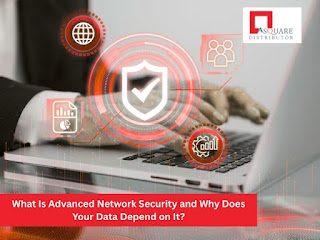The Ultimate Guide to Choosing the Right Desktop for Your Business
In today’s digital-first world, having the right desktop computers is critical to business success — whether you're running a small startup or managing a large enterprise. The desktop you choose can directly impact employee productivity, data security, operational efficiency, and even long-term IT costs. With so many options available, it can be overwhelming to decide which system best fits your needs. That’s where computer dealers come in — helping businesses navigate specs, brands, and configurations to make the right investment.
1. Understand Your Business Needs
The first step is assessing what your business actually needs from its computers. Are your employees doing basic office work, graphic design, video editing, software development, or data analysis? Each use case requires different specifications.
-
Basic Office Tasks (email, spreadsheets, web browsing): Look for desktops with at least an Intel i3 or AMD Ryzen 3, 8GB RAM, and SSD storage.
-
Creative Work or Development: Aim for Intel i5/i7 or Ryzen 5/7 processors, 16–32GB RAM, dedicated GPU, and large SSD or hybrid drives.
-
Server or Data Processing Tasks: Consider workstation desktops with Xeon processors, ECC memory, RAID support, and enterprise-level hardware.
Understanding how your team will use their desktops helps narrow the choices significantly.
2. Choose Between All-in-One, Tower, or Mini PCs
Desktop computers come in a variety of form factors:
-
Tower Desktops: Highly customizable and great for future upgrades. Ideal for growing businesses.
-
All-in-One (AIO): Sleek, space-saving units with built-in displays. Best for clean workspaces but less flexible for upgrades.
-
Mini PCs: Compact and efficient for light tasks or environments with limited space.
computer dealers often stock multiple types, and a good dealer will help you balance performance, design, and upgrade potential depending on your workspace and industry.
3. Select the Right Processor and RAM
The CPU is the heart of the system. For multitasking, data handling, and faster performance, more powerful processors (e.g., Intel Core i5/i7 or AMD Ryzen 5/7) are recommended. Avoid older generations unless you're buying refurbished systems strictly for light tasks.
When it comes to memory, 8GB RAM is the minimum for most business desktops today. However, 16GB or more is ideal for running multiple applications or working with large files — especially in design, engineering, or coding environments.
4. Storage: SSD vs. HDD
Speed and storage capacity are both important. Solid State Drives (SSDs) are significantly faster than Hard Disk Drives (HDDs), offering quicker boot times and application loading. For most businesses, a 256GB or 512GB SSD is a great starting point. For data-heavy businesses, consider combining SSDs for the OS and programs with HDDs for storage.
5. Operating System and Security Features
Most businesses rely on Windows 11 Pro due to its additional security, remote desktop capabilities, and better integration with enterprise tools. Make sure your desktops come with genuine licensed software.
Security is non-negotiable in a business setting. Look for desktops with TPM chips, biometric login options, and business-grade antivirus compatibility.
6. Budget vs. Long-Term Value
While it’s tempting to go for the cheapest option, consider Total Cost of Ownership (TCO) — including future upgrades, maintenance, energy usage, and repair support. Investing in slightly higher specs now can save you from major replacement costs in the next couple of years.
Trusted computer dealers often offer tailored solutions for businesses, including leasing options, warranty extensions, and ongoing tech support — all of which can significantly improve your ROI.
7. After-Sales Support and Warranty
Support matters. Choose desktops backed by strong manufacturer warranties and after-sales service. This becomes even more crucial in case of hardware failures or software issues.
Many computer dealers in Saudi Arabia and beyond offer business contracts that include on-site support, periodic maintenance, and even staff training. Make sure to ask about these services when making your purchase decision.
Conclusion
Choosing the right desktop for your business isn’t just about picking the latest model or the cheapest deal. It’s about aligning your hardware with your operations, your team’s needs, and your growth goals. By understanding your business requirements, comparing technical specs, and working with experienced computer dealers, you can make an informed decision that saves time, improves efficiency, and supports long-term scalability.




Comments
Post a Comment